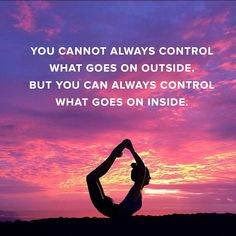I attended a two hour class today regarding surviving a lay off.
Our metro area coordinates with the state unemployment insurance department to get folks registered in their local county work force program. At the work force site, they have several computers for people to work on their resumes, do job searches and take internet classes. They also offer classes on-site.
The first thing I want to mention is that all the anger and betrayal we felt at the-company-that-shall-not-be-named was justified and natural. That we figured out very early on that the aforementioned paid no attention to the corporate values they touted and were upset by that lack of consistency, that too, is normal.
Hey, I get it. We are smart people and we don't like being lied to and manipulated.
Losing a job is a major life stress. The number one item causing stress in a person's life is the loss (death) of a spouse. According to our leader, losing a job is the fifth most stressful thing that can happen to someone.
Because being laid off of your job is a loss, it is also natural to go through a grieving process. Years ago, this process was identified. It generally has five major components - Denial, Anger, Bargaining, Depression, and finally Acceptance. They generally come in this order although they don't have to. The amount of time an individual spends with each also varies. Additionally, the total amount of grieving time is different from person to person.
DO NOT LET ANYONE TELL YOU THAT YOU SHOULD BE OVER THIS ALREADY!
Everyone grieves in their own way in their own time frame. There is no time limit to any of the stages, and each stage can be radically different from one another.
For our group, I think we hit denial pretty quickly by talking about what the company did to us. We were in such shock and so flabbergasted the first day, we could barely speak. We were trying to process it all, and pretty much shut down. Most of us didn't stay long in the denial stage.
We moved pretty darn quickly into anger. Some of us were in it for a full two months; some more.
Unfortunately, there was no bargaining to be done. Which, if the company had truly believed in relationships, integrity, and compassion, they would have offered up possibilities for "bargaining" right away. For instance, they could have provided us immediately with options tailored for each individual of where else they might be able to fit in with the corporate giant and paved the road for a job transfer without anyone ever missing a pay check.
The fourth stage is depression and a lot of us are in that stage right now. I hear it in the things people say to me. I know it from the thoughts I sometimes have regarding the entire situation. Being in my late 50's there is a sense of not only loss, but of despair of finding another decent paying job. There is the fear of being betrayed again, of wondering when the ax is going to fall again.
It is also natural for all those emotions to recycle back through your life. Hopefully, each recycle is a little weaker until you cease to think about the situation constantly. For us in the lay off that will probably come with a new job of some sort.
There is also a difference, a big one, between being laid off, or let go (fired). Remember, being laid off, no matter how it feels, IS NOT YOUR FAULT!
Remind yourself of that every time you find yourself wondering if you could have done something different to create a different outcome.
There are a number of coping strategies you can use to help you through the grief. I've blogged, extensively about what this lay off did to me, and the anger and betrayal I've felt. Other people have found solace in clearing away stuff - cleaning out the garage, decluttering, tossing junk.
Other strategies included volunteering, exercising (great way to release anger and endorphins), carefully selecting what they watch on television (things to build them up rather than make them sadder), hearing more comedy (laughter is good for you).
Probably the thing our group could have done better, and we were getting better at it toward the end, is being positive. Surrounding yourself with can-do, positive people can help you cope, as long as you don't let them strong arm you into thinking you should be over your grief.
Another powerful way to help deal with the grief and disappointment is to develop an attitude of gratitude. List things every day that you are thankful for. Write letters to the people you are thankful for, the people that had a positive impact on your life. Once you've put that into words, send it to them, or better yet, give them a phone call and make their day. Who knows, maybe they are in need of a little positive reinforcement themselves.
And that, dear friends, was just the first hour of our class.
As I went through the class today, I found myself wishing, oh that I had been a little bit smarter.
I wasn't then, but am now. How about you?
Blessings!




